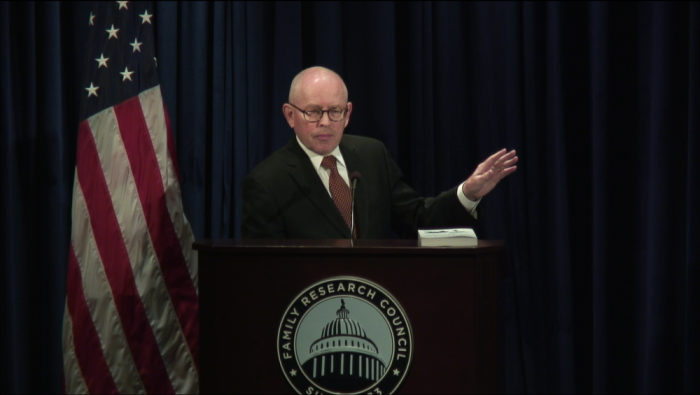Systematic Theology Author Wayne Grudem Says He Has Parkinson's Disease

Wayne Grudem, author of Systematic Theology, has announced that he has Parkinson's disease, a neurological disorder for which there is no known cure, but he and his wife, Margaret, "feel a deep peace from the Lord about this."
"Join me in praying that God would heal the body, sustain the faith, and give the strength for the work Wayne believes he is still called to do," writes theologian John Piper on the desiringGod website, which carries a letter Grudem sent to some of his friends to let them know about the diagnosis.
A neurologist has "confirmed that I definitely have Parkinson's disease," writes Grudem, 66, research professor of theology and biblical studies at Phoenix Seminary.
Evangelist Billy Graham has had Parkinson's for 26 years.
"The symptoms that I have now include a diminishing of fine-motor control, so that my handwriting is less legible and more crowded together; and in typing, I sometimes hit a key twice or not at all; and my mouse control is not as precise with the computer. It's also harder to button my shirts, and I sometimes feel a tiny tremor when I reach for things," Grudem says in the letter. "I can still do all these things, but they are a bit slower and take more concentration. In addition, I seem to be moving my arms and legs more slowly in ordinary daily activities. And my wife, Margaret, says that sometimes my facial expression seems a bit 'fallen,' and I notice that it's harder to smile. In recent photos, my smile has not seemed as genuine or natural, but more forced."
There are medicines to alleviate the symptoms which may also slow the progress of the disease. "The doctor started me on one medicine that helps some patients, but not others," Grudem writes, adding, "She did not think my symptoms were severe enough to start me on the most common medicine (dopamine), because its effectiveness diminishes over time and she did not want to start it too early."
Grudem is seeking an appointment at Barrow Neurological Institute in Phoenix.
"Parkinson's usually does not shorten a person's life expectancy very much, but in any case, I'm happy to live as long as the Lord wills that I live, and to keep on being productive for as long as he enables me to do so," the New Testament scholar turned theologian writes.
He says his wife has been a wonderful help and encouragement. "We're in this together," Margaret keeps reminding him, he adds, describing her as "an amazing, most wonderful wife."
"We both feel a deep peace from the Lord about this," he writes.
Grudem is currently working on a textbook on Christian ethics, "which I hope will take me about one more year to finish after the first draft is done." He is also revising his book Systematic Theology, "which should take from 2017 to 2019."
He will also continue to teach at Phoenix Seminary, "so long as I am able to teach effectively," Grudem says.




























